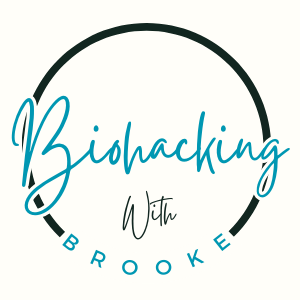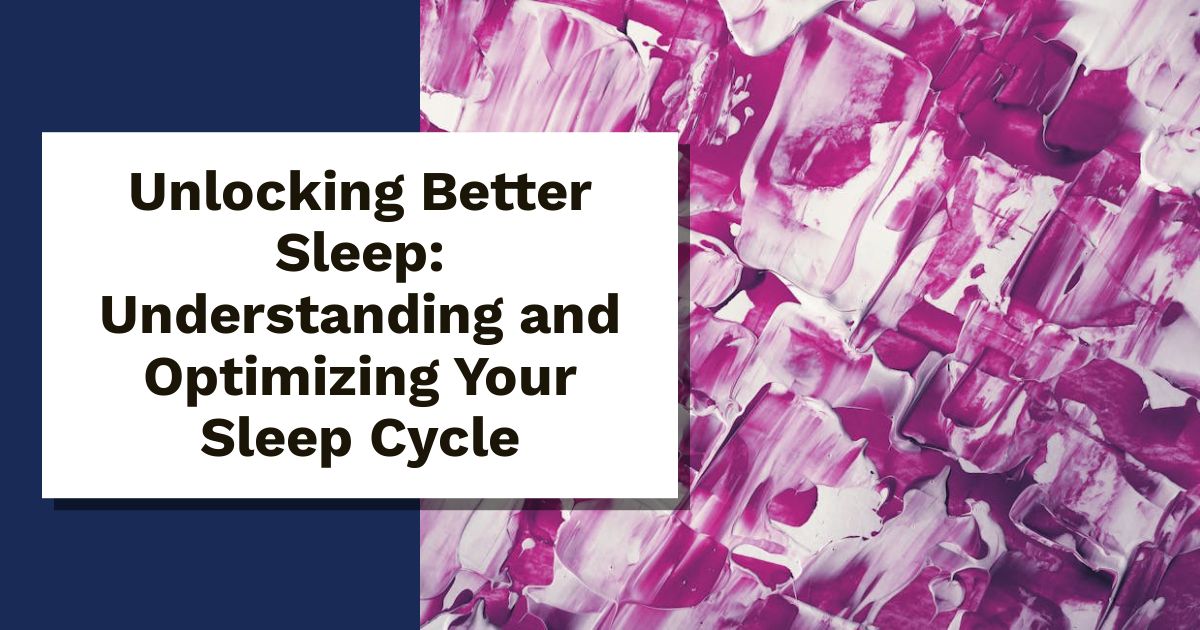Did you know that your sleep isn’t just a time to shut your eyes? It’s a complex dance of cycles that can affect your mood, focus, and overall health. Understanding these sleep cycles is key to unlocking better rest and peak performance.
In this post, we’ll break down the stages of sleep and what happens in each phase. You’ll learn how to optimize your sleep for rejuvenation and energy. If you struggle with catching those Z’s, you’re not alone. Many people overlook the power of sleep cycles, and it’s time to change that.
Ready to turn your nights into a restorative experience? Let’s dive in and discover how to improve your sleep cycle today!
What Is a Sleep Cycle?
Understanding a sleep cycle can transform how you view rest. A sleep cycle is a sequence of stages your body goes through while you sleep. This cycle includes different phases, each playing a key role in your overall health and well-being.
Stages of Sleep
When you drift off to sleep, you enter two primary stages: non-REM and REM. Each has its unique characteristics and benefits.
- Non-REM Sleep: This stage has three distinct phases:
- Stage 1: The lightest stage of sleep, lasting just a few minutes. You can be easily awakened during this time.
- Stage 2: Here, your body starts to relax. Your heart rate slows, and body temperature drops.
- Stages 3 & 4: These are known as deep sleep, where restorative processes happen. Your body repairs tissues and strengthens the immune system.
- REM Sleep: Occurring about 90 minutes after falling asleep, this stage is when dreaming happens. Your brain becomes active, and your eyes move rapidly under your eyelids. REM sleep is vital for emotional regulation and memory consolidation.
With each cycle, your body transitions through these stages, culminating in a blend of restful and restorative sleep. For a deeper understanding, check out Stages of Sleep: REM & Non-REM Sleep and How Sleep Works – Sleep Phases and Stages.
Duration of Sleep Cycles
A typical sleep cycle lasts about 90 to 120 minutes. Most adults experience four to six cycles per night. The first cycle might be shorter, around 70 to 100 minutes, but as the night progresses, the cycles generally lengthen. This means you’ll spend more time in REM sleep in the later cycles. Aim to align your sleep schedule for optimal rejuvenation. For more details, explore How long is a sleep cycle and how to understand yours and Sleep cycle stages and their effect on the body.
Understanding your sleep cycle helps you make adjustments for better rest. So, how can you optimize yours?
Why Sleep Cycles Matter
Understanding sleep cycles is crucial for enhancing your overall health and day-to-day performance. Sleep isn’t just a passive state; it actively influences your body and mind in surprising ways. Let’s break down why maintaining a healthy sleep cycle is essential for you.
Impact on Health
Healthy sleep cycles do wonders for your physical and mental health. When you follow a proper sleep cycle, various processes kick into gear that benefit your body immensely. Think of your body as a factory that needs time to repair and rejuvenate overnight.
Here’s how sleep cycles contribute to better health:
- Physical Repair: During deep sleep, your body focuses on repairing muscles, tissues, and organs. This recovery is critical for athletes and anyone looking to maintain fitness.
- Boosted Immune Function: Quality sleep strengthens your immune system. A well-functioning immune system helps fend off illnesses, so you can stay active and healthy.
- Emotional Stability: Sleep cycles help regulate mood and emotional response. Lack of quality sleep can lead to irritability and increased stress. Studies show that disrupted sleep can induce emotional distress and mood disorders. Read more about the health impacts of sleep and short and long-term health consequences of sleep.
Boosting Daily Performance
Your daily performance hinges on how well you sleep. Ever notice how after a poor night’s rest, your brain feels foggy? That’s no coincidence! Sleep cycles play a significant role in cognitive function.
Here’s how proper sleep enhances cognitive abilities:
- Memory Consolidation: During REM sleep, your brain processes information from the day, helping transform short-term memories into long ones. This is essential if you’re learning something new or trying to remember important details.
- Improved Focus and Concentration: Consistent, quality sleep fosters sharper thinking. Research indicates that adequate sleep boosts cognitive performance, allowing you to tackle challenges more effectively. Insufficient sleep can impair decision-making and reduce your ability to concentrate. Explore the relationship between sleep and cognitive impairment here.
- Emotional and Creative Thinking: Sleep influences not just logic and recall but also creativity and emotional insight. When you sleep well, your brain is more open to making connections and thinking outside the box. A study highlights that maintaining stable sleep improves both working memory and response inhibition. For further reading, check out the details on how lack of sleep affects cognitive performance.
Understanding and optimizing your sleep cycles will set you on the path to better health and improved performance every day.
How to Optimize Your Sleep Cycle
Getting a good night’s sleep isn’t just a luxury; it’s essential for your well-being. Optimizing your sleep cycle can seem tricky, but there are straightforward steps you can take. Here’s how to make your nights more restorative and your days more energized.
Establish a Consistent Sleep Schedule
Think of your body like a finely-tuned clock. Going to bed and waking up at the same time every day is key. This consistency helps regulate your internal clock, making it easier to fall asleep and wake up refreshed.
- Set a Bedtime: Choose a time that allows for enough sleep, typically 7-9 hours.
- Stick to It: Even on weekends, try to maintain your schedule. This keeps your sleep cycle steady.
- Listen to Your Body: If you’re sleepy, it’s okay to go to bed earlier or adjust as necessary.
For tips on fixing your sleep schedule, check out this guide on How to Fix Your Sleep Schedule.
Create a Restful Environment
Your bedroom should be a sanctuary for sleep. Here’s how to make it a comfy retreat:
- Darkness Matters: Use blackout curtains to block light. A dark room signals your brain that it’s time to sleep.
- Keep it Cool: A cool temperature helps improve sleep quality. Aim for a temperature between 60 to 67 degrees Fahrenheit.
- Minimize Noise: Use earplugs or a white noise machine if ambient sounds disturb you.
For more tips, explore this article on creating a sleep-friendly bedroom.
Limit Distractions Before Bed
Are screens keeping you up? Reducing distractions can significantly improve your sleep.
- Cut Screen Time: Try to unplug from devices at least 30 minutes before bed. The blue light from screens interferes with melatonin production.
- Establish a Wind-Down Routine: Engage in calming activities like reading or gentle stretching.
- Calm the Mind: Consider meditation or listening to soothing music to quiet an active mind.
For strategies to minimize nighttime distractions, check out this helpful resource on sleep distractions.
Mind Your Diet and Exercise
What you eat and how you move can influence your sleep patterns.
- Watch Your Dinner: Heavy meals close to bedtime can disrupt sleep. Aim to finish eating at least two to three hours before sleeping.
- Limit Caffeine and Alcohol: These substances can interfere with sleep quality. Keep them in check, especially in the evening.
- Stay Active: Regular exercise promotes better sleep. Aim for at least 30 minutes of activity most days, but avoid vigorous workouts close to bedtime.
For a deeper look at the connection between diet, exercise, and sleep, see this article on the relationship between diet and sleep.
By optimizing your sleep cycle with these practical steps, you can wake up feeling refreshed and ready to take on the day. So, what changes will you make tonight?
Tools for Tracking Sleep Cycles
Monitoring your sleep cycles is a key step in improving your rest. With the rise of technology, many tools are available to help you track and optimize your sleep patterns. Here are two main categories to consider: sleep apps and wearable tech.
Sleep Apps
Sleep apps offer a convenient way to track your sleep patterns right from your phone. They analyze your sleep cycles, wake you up at the right time, and even help you unwind before bed. Some popular options include:
- Sleep Cycle: This app tracks your sleep patterns and wakes you up during the lightest sleep phase, so you feel more refreshed. Check it out here.
- Pillow: This app features advanced sleep tracking and offers insights into your sleep quality and recommendations for improvement.
- Sleep as Android: This app not only tracks your sleep but also features smart alarms and sleep sounds to improve your experience.
- Calm: While primarily a meditation app, it includes sleep stories and soothing sounds to help you fall asleep.
For a broader overview of the latest sleep apps, explore The 6 Best Sleep Apps of 2024 and The Best Sleep-Tracking App.
Wearable Tech
Fitness trackers have become a popular way to monitor sleep. These devices are designed to gather a wealth of data as you move through the day and night. They typically measure your heart rate and activity levels to determine when you’re asleep.
Here’s how they help:
- Sleep Stages: Many trackers can distinguish between different sleep stages, such as light, deep, and REM sleep. This allows you to understand not just how long you slept, but also the quality of that sleep.
- Movement Tracking: When you wear a fitness tracker to bed, it monitors your movements during the night. If you’re tossing and turning, the device records this, giving you insights into sleep interruptions.
- Heart Rate Monitoring: As you sleep, your heart rate changes. Wearable devices use this data to better assess sleep quality, letting you know if your heart rate was unusually high or low while you slept.
To learn more about how these devices work, read How fitness trackers monitor your sleep and Do Sleep Trackers Really Work?.
Choosing the right tools for tracking your sleep cycles empowers you to make informed decisions about your sleep habits, leading to better rest and improved overall health. What’s your favorite tool to track your sleep?
Common Sleep Disorders
Sleep disorders can throw a wrench into your nighttime routine, leaving you feeling drained and unfocused. Understanding these common issues is key to finding relief and restoring your sleep cycle. Let’s take a closer look at insomnia, sleep apnea, and restless leg syndrome.
Insomnia
Insomnia is more than just a pesky problem; it’s a widespread issue that affects millions. Characterized by difficulty falling or staying asleep, insomnia can mess with your entire sleep cycle. Imagine tossing and turning for hours, only to wake up feeling like a zombie.
The effects of insomnia can ripple throughout your day. Many people feel irritable, unfocused, and downright fatigued. Lack of sleep can lead to serious health issues, including anxiety and depression. It’s essential to tackle insomnia early, as chronic cases can leave you feeling like you’re running on empty. For more information, check out Insomnia: Restoring restful sleep and Insomnia: What It Is, Causes, Symptoms & Treatment.
Sleep Apnea
Sleep apnea is a serious condition where your breathing stops and starts repeatedly during sleep. This disruption can lead to frequent awakenings and prevent you from getting the restorative sleep you need. Picture going to bed exhausted, yet waking up feeling like you’ve hardly slept at all.
This disorder can have severe effects on your sleep cycle. It interrupts essential REM sleep, making it hard for your body to recharge. Over time, sleep apnea can increase your risk of chronic conditions like diabetes and heart disease. If you suspect you have sleep apnea, seeking help is crucial. Learn more about this condition at Sleep Apnea: What It Is, Causes, Symptoms & Treatment and How Sleep Apnea Affects Sleep Stages.
Restless Leg Syndrome
Restless leg syndrome (RLS) is that annoying feeling of an irresistible urge to move your legs, especially at night. It can make winding down in bed feel impossible. Think of it as your legs throwing a tantrum when all you want is a good night’s rest.
While you may not think RLS is a big deal, it can severely impact your sleep quality. Those sensations often lead to difficulty falling asleep or staying asleep. The result? Daytime fatigue and even moodiness as your body struggles to cope. Don’t let RLS hold you back; understanding it can help you take the necessary steps towards better sleep. Discover more about RLS at Is Restless Legs Syndrome Ruining Your Sleep? and Restless Legs Syndrome: Symptoms and Causes.
Understanding these common sleep disorders is the first step to regaining control over your rest. The sooner you can identify and address them, the quicker you can move toward restful, restorative sleep.
Conclusion
Prioritizing your sleep cycle can bring remarkable benefits to your life. Understanding how sleep works and implementing easy strategies to optimize it will enhance your health and daily performance. By sticking to a sleep schedule, creating a comfortable space, and limiting distractions, you set the stage for deep, restorative sleep.
Now is the time to take action. Assess your current sleep habits and make a change for the better tonight. What small adjustment can you try to improve your sleep experience? Your body and mind will thank you for it!
Brooke is a rock-climbing 🧗♀️, tennis-playing 🎾, biohacking 🧬 bookworm 📚 on a mission to unlock the secrets of health, longevity, and living life to the fullest 🌟. When she’s not scaling cliffs, hitting the courts, or testing out the latest hacks, you’ll find her nose in a book or adventuring with her four-legged best friend 🐕 by her side. With a knack for turning science into simple, actionable tips, Brooke’s writing is your guide to hacking your biology and living your best, most vibrant life!


